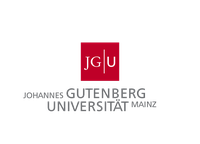Zusammenfassung
- Was Call For Articles — Counter-Curation
- Wann to (Europe/Berlin / UTC200)
- benötigte Unterlagen Abstract (max. 500 words), short CV
- Termin herunterladen iCal Datei herunterladen
Beschreibung
The editors of this Special Issue seek articles that focus on forms, functions, and connections between varied practices of performing the past that challenge established and institutionalized modes of remembrance.
Such practices, here understood as counter-curation, highlight individuals' desire to actively restructure interpretations of the past and thus open up spaces for the negotiation of cultural norms. Reenactments of past battles (e.g., the American Civil War or the Napoleonic Wars) are a good case as "playing war" confronts widely accepted democratic norms regarding peaceful behavior. We use the concept of counter-curation as an interdisciplinary approach to address people’s desire to actively restructure dominant interpretations of the past — and present or perform them in public.
In the museum context, curation means bringing together objects from different places in a limited space for the purpose of an exhibition. In a broader sense, we understand curating as an act of presenting and maintaining specific ideas and interpretations of the past in a public space. Curation is also about the conservation, preservation, and symbolic display of a group’s norms and values. It touches on prestige as well as on the transfer of knowledge. The role of curators is central to this process. The importance of curating as an analytical approach is rooted in the initiation of exchange processes, which in turn generate a social environment in which people can come together. The concept of curation allows us to look at negotiations of norms and values. It takes into account multiperspectivity, ambivalences and contradictions. Curation emphasizes the unfinished process of historical meaning-making. Recent studies in the field of public history and anthropology are concerned, in the words of Sharon Macdonald, “with the ways in which people variously draw on, experience, negotiate, reconstruct, and perform the past in their ongoing lives”.
Counter-curation emphasizes concrete acts of presenting “alternative historical narratives” in the here and now. Counter-curators tend to have a lot of things in common. While counter-curators may share commonalities, they often disagree in terms of what constitutes appropriate activities and the goals they hope to achieve. Their practices are part of a wider trend of practical commemoration, also seen in the selection and recreation of objects to represent an imagined past, the private curation of exhibitions against the grain of museological strictures, or the production of recordings and other media that stress facets of the past sidelined by larger discourses.
We invite contributors to examine this tension using various approaches to enable a deeper understanding of processes of historical meaning-making that have so far not been thoroughly addressed in applicable academic discourses. We encourage contributions from different disciplinary backgrounds including but not limited to anthropology, sociology, (public) history, heritage-, tourism- and leisure studies. Contributions should discuss case studies of counter-curation and link them to the theoretical debates outlined above.
Case studies are welcome from any geographical area.
We especially welcome papers addressing the following topics:
- What characterizes acts of counter-curation? How do they come into being? (Theoretical development of the term)
- Who are the actors in processes of counter-curation? What is their personal and/or institutional background? What is their motivation to embark on counter-curational projects?
- Who are the audiences? How do interactions between audiences and performers take place? Are processes of co-creation of historical knowledge enabled in these settings? If so, how do they take place and what kind of knowledge is created?
- What are key concepts which structure processes of counter-curation? For example: authenticity, nostalgia, escapism, empowerment, truth-finding, achieving (social) justice?
- What are the implications of counter-curational actions? What impact do they have on communities, institutions, policies (tourism)?
- What is the scope of gender issues within the practices of counter-curations?
- What significance do aesthetic dimensions (sensory perceptions, body concepts) have for the actors?
- To what extent does digitalisation have an impact on counter-curation? How do digital tools empower and influence participatory processes of counter-curation?
Please send abstracts of no longer than 500 words and a short CV via mail by November 19th 2021.
The special issue will be edited by an interdisciplinary team: Torsten Kathke (History; Obama Institute - Mainz University), Juliane Tomann (Public History ; Imre Kertész Kolleg - Jena University) and Mirko Uhlig (Cultural Anthropology/European Ethnology; FTMK - Mainz University). Abstracts will be reviewed by the editors. Target date for article submission: May 2022.
Kontakt
Dokumente senden an
countercuration[ at ]uni-mainz.de

